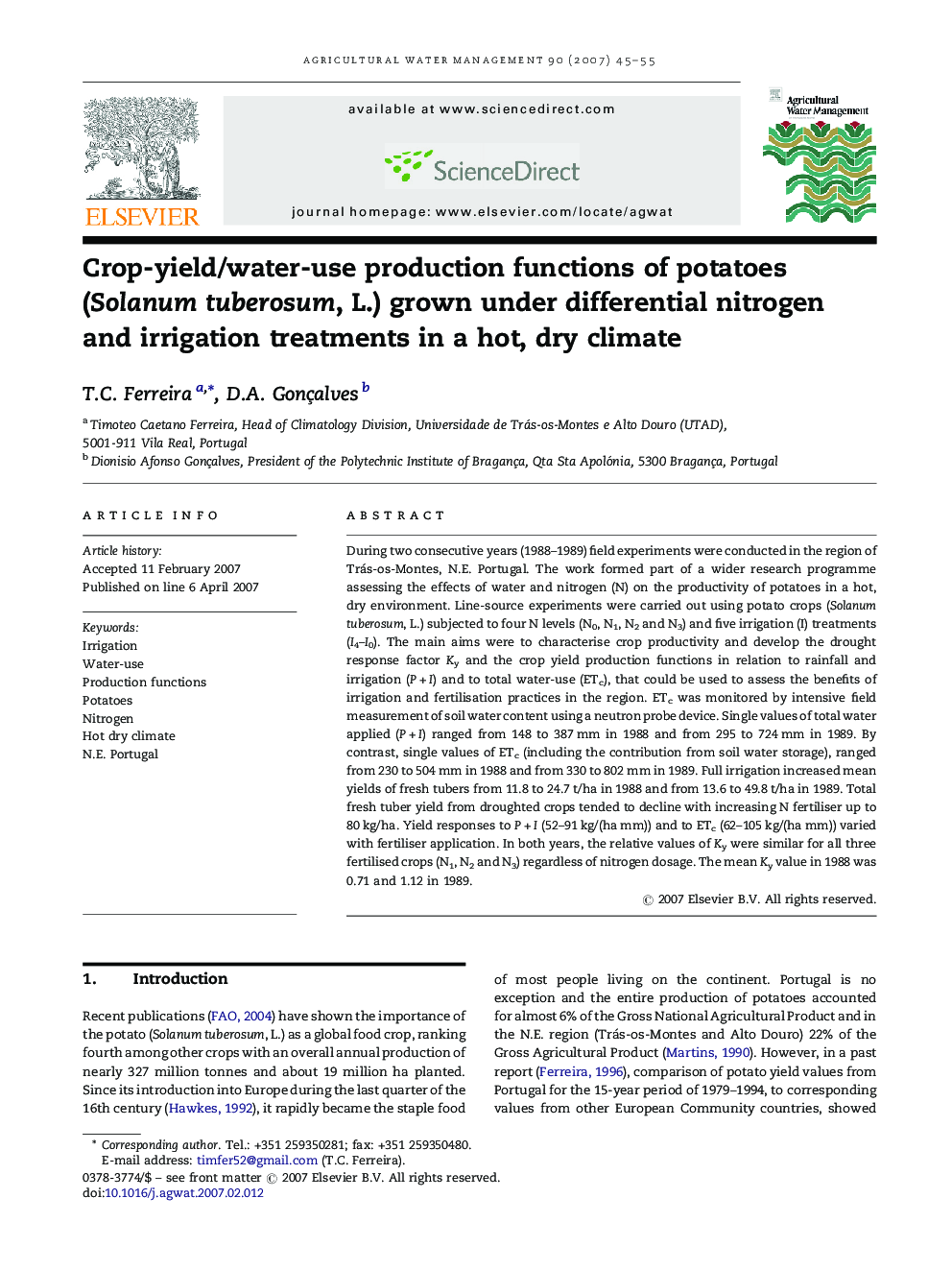| Article ID | Journal | Published Year | Pages | File Type |
|---|---|---|---|---|
| 4480388 | Agricultural Water Management | 2007 | 11 Pages |
During two consecutive years (1988–1989) field experiments were conducted in the region of Trás-os-Montes, N.E. Portugal. The work formed part of a wider research programme assessing the effects of water and nitrogen (N) on the productivity of potatoes in a hot, dry environment. Line-source experiments were carried out using potato crops (Solanum tuberosum, L.) subjected to four N levels (N0, N1, N2 and N3) and five irrigation (I) treatments (I4–I0). The main aims were to characterise crop productivity and develop the drought response factor Ky and the crop yield production functions in relation to rainfall and irrigation (P + I) and to total water-use (ETc), that could be used to assess the benefits of irrigation and fertilisation practices in the region. ETc was monitored by intensive field measurement of soil water content using a neutron probe device. Single values of total water applied (P + I) ranged from 148 to 387 mm in 1988 and from 295 to 724 mm in 1989. By contrast, single values of ETc (including the contribution from soil water storage), ranged from 230 to 504 mm in 1988 and from 330 to 802 mm in 1989. Full irrigation increased mean yields of fresh tubers from 11.8 to 24.7 t/ha in 1988 and from 13.6 to 49.8 t/ha in 1989. Total fresh tuber yield from droughted crops tended to decline with increasing N fertiliser up to 80 kg/ha. Yield responses to P + I (52–91 kg/(ha mm)) and to ETc (62–105 kg/(ha mm)) varied with fertiliser application. In both years, the relative values of Ky were similar for all three fertilised crops (N1, N2 and N3) regardless of nitrogen dosage. The mean Ky value in 1988 was 0.71 and 1.12 in 1989.
